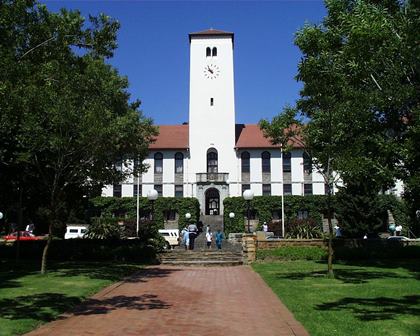The African Regional Round of a prestigious international Moot Court Competition on trade law will be hosted by Rhodes University in Grahamstown next week.
The 15th European Law Students’ Association (ELSA) Moot Court Competition on 9-13 April is a simulation of a World Trade Organization (WTO) panel proceeding. The competition is a student-run moot court competition organised annually by ELSA in co-operation with the WTO. It builds awareness of the WTO dispute settlement system and provides students around the world with legal knowledge and skill, building global legal capacity at the same time.
“Africa has been notably under-represented from dispute settlements at the WTO and that’s largely because we don’t have the capacity. So what this competition does is it builds an awareness of the importance of this area of law,” said Rhodes Law lecturer Vicky Heideman, African Regional Round Organiser of the previous and upcoming edition.
This year, teams from Ethiopia, Kenya, South Africa, Tanzania, Liberia, Lesotho, and Uganda will compete against each other for three days of pleadings.
All teams are to present their arguments for both parties of the dispute regarding a fictitious case and will be judged by distinguished Panellists from renowned institutions, firms, and universities such as the United Nations Economic Commission for Africa (UNECA), the South African Department of Trade and Industry (DTI), Advisory Centre on WTO Law (ACWL), International Centre for Trade and Sustainable Development (ICTSD), PwC, Mayer Brown, ENS Africa, the University of Barcelona, the University of Namibia, the South African Institute of International Affairs (SAIIA), and the WTO itself.
During the different stages of the competition, the participants will develop their trade law knowledge and pleading skills. The best students will be awarded special scholarships, internships, and traineeships, giving them an opportunity to gain legal knowledge at the ICTSD, United Nations Conference on Trade and Development (UNCTAD), the World Trade Institute, and the University of Barcelona’s International Economic Law and Policy (IELPO) programme.
The best teams from the African Regional Round will advance to the Final Oral Round that will be held in Geneva, Switzerland from 6-11 June 2017. They will compete against the finalists from the other regional rounds, i.e. the All-American, Asia-Pacific, and European regional rounds.
The African Regional Round has received significant financial and technical support from the African Trade Policy Centre of UNECA. Other financial sponsors include Van Bael & Bellis, Webber Wentzel, the Society of International Economic Law, Tutwa Consulting, and the generous contributions of Prof. Gabrielle Marceau, Counsellor, WTO and former WTO Appellate Body member Adv. David Unterhalter. The round has also benefitted from contributions-in-kind and additional prizes from institutions such as the National English Literary Museum in Grahamstown, South Africa, ACWL, SAIIA, Meridian Wine Merchants, WTI Advisors, and the Trade Law Centre (TRALAC).
In order to support the participation of the African teams in the Final Oral Round, the organisers welcome donations. These donations can be submitted via PayPal: www.emc2.elsa.org/partners. The purpose of the donation should be specified as “Support for the African Teams”.
emc2.elsa.org
Twitter: @elsa_org
Email: mootcourts@elsa.org
www.ru.ac.za/law/facultynews/theelsamootcourtcompetition.html
Facebook: African Regional Round EMC2 2017
About ELSA
The European Law Students’ Association is an international, independent, non-political and non-profit-making organisation, which is run by and for law students and young lawyers. Founded in 1981, ELSA is now the world’s largest independent law students’ association with 50 000 members in 43 countries offering career, networking and personal development opportunities.
More information: www.elsa.org


